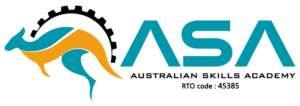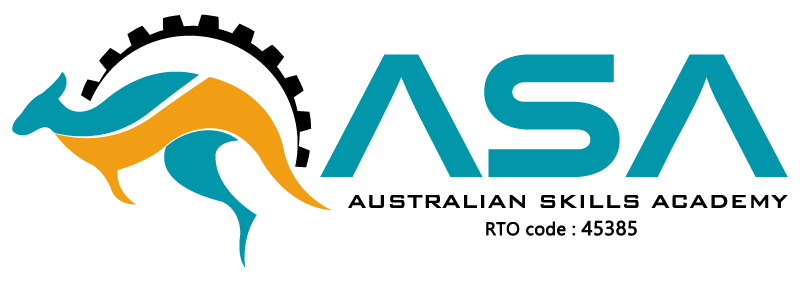BSB50920 | Diploma of Quality Auditing
$$
About this course
BSB50920 – Diploma of Quality Auditing
This qualification reflects the role of individuals who possess a sound theoretical knowledge base and use a range of specialised, technical or managerial competencies to plan, carry out and evaluate their own work and/or the work of a team. They may work as quality assurance managers, quality facilitators, quality and improvement consultants or service quality system support analysts.
Licensing/Regulatory Information
No licensing, legislative or certification requirements apply to this qualification at the time of publication.
| Download Brochure | Size |
|---|---|
| Quality Auditing Courses.pdf | 138 KB |
Course Overview
BSB50920 Course Outline
Packaging Rules
Total number of units = 12
4 core units plus
8 elective units, of which:
-
- 2 elective units must be selected from Group A
-
- 2 elective units must be selected from Group B
-
- for the remaining 4 elective units:
-
- up to 4 units may be selected from Groups A and B
- if not listed, up to 2 units may be selected from a Certificate
IV from this or any other currently endorsed Training Package qualification or accredited course - if not listed, up to 4 units may be selected from a Diploma or Advanced Diploma from this or any other currently endorsed Training Package qualification or accredited course.
Elective units must be relevant to the work environment and the qualification, maintain the integrity of the AQF alignment and contribute to a valid, industry-supported vocational outcome.
If not listed below, 1 unit may be selected from either a Certificate IV or Advanced Diploma qualification.
Elective units must be relevant to the work environment and the qualification, maintain the integrity of the AQF alignment and contribute to a valid, industry-supported vocational outcome.
Entry requirement
Nil
Pathway From the Qualification
After achieving this qualification, Candidates may progress to higher level qualifications.
Credit/Advance Standing/RPL
Our college recognises the skills and knowledge that students may have gained through previous studies, workplace and life experience. They may be entitled to gain recognition of prior learning before or after commencing the course that may exempt them from attending one or more units. Students who believe they already have the skills and knowledge required to demonstrate competency can request a copy of the RPL application form. Students are provided with information regarding the evidence required for each qualification and must provide valid, sufficient, current and authentic evidence to demonstrate competency. RPL is based on a portfolio and interview approach, where students accept the main responsibility for identifying, gathering and submitting evidence about their achievement of the competencies. The RPL process may involve a practical demonstration assessment too.
Work placement and Industry Membership
No work placement and industry membership providers for this course at this time.
Additional supports and services
Additional support is available for students with learning difficulties and disabilities. The College welcomes contact with parents/guardians of students who are under 18.
Possible Career Outcome
- Occupational Health
- Safety Practitioner
- Occupational Health and Safety Officer
Course Delivery
This course is being delivered by an external flexible delivery mode via fee for service. There is no requirement to attend classes but there are workshops held throughout the year. Your training is centred around your workplace.
You will have 12 months in which to complete your studies.
During the 12-month period, you can expect to commit an average of 110 hours per month to develop your knowledge and skills. This includes the time you spend at work practising and developing your auditing skills.
The training we provide combines workplace training and supervision, regular meetings with the trainer, guidance sessions (e.g. Skype), attending one-day workshops undertaking structured learning activities, personal research, reading and completing your assessments.
You will be guided by the trainer through regular scheduled personal contacts either at work or at an acceptable external location. Your personal training plan specifies what learning is required and you are encouraged to seek supervision especially in the application of skills at work.
Your progress is monitored by the trainer utilising the training record book and (if applicable) coordinated with the workplace supervisor.
Subject reference materials, learner guide, training record book, training plan and assessment activities are provided by the trainer and they are also available via the internet through the ASA portal.
Typically, a learner will
| Type of activity | Hours | What we do |
| Workshops (10 x 6 hours each) | 60 | Reviewing practices and processes |
| Structured learning activities | 80 | Completing specific tasks to reinforce learning |
| Face to Face contact with the trainer | 100 | Regular ongoing contact with the trainer at your workplace reviewing learning materials and the training plan |
| Supervised workplace learning | 800 | We provide guidelines for you and your supervisor to continually expose you to activities to support your learning |
| = Amount of training | 1040 | |
| Assessments | 260 | We provide you workbooks containing all the instructions and guidance needed as you progress |
| Total hours | 1300 | Approximately 110 hours/month |
On enrolment and at the time of the initial interview, you will have the opportunity to review your current work experience (in auditing) and you will be informed about the opportunity for recognition of your skills and experience. It may mean that some of the information can be used by the trainer to develop a specific training plan for you based on the principles of gap training and contextualised according to your working environment. We will also take this opportunity to review your proficiency in LLN and outline to you the support services that are available if required.
Your progress is measured by the completion of learning activities and assessment within agreed time frames. You have 12 months to complete this course (but this may be extended by a further 6 months’ subject to the circumstances described in ASA policies and procedures).
All candidates for this qualification will be interviewed to establish whether they have the necessary pre-requisites (see Course Overview) and to ensure they have access to a workplace where they can receive supervision relating to developing their skills in Auditing. This will include having access to Industry standards and workplace documents and processes. During the interview, all reasonable efforts will be made to ensure the applicant is aware of the demanding LLN requirements associated with this course and to ensure they have the capabilities to complete the course within a reasonable time. In addition, the applicant will be provided with the opportunity to complete a self -assessment instrument which can be used for an assessment via RPL.
Payment Options
We have a number of options to allow you to select a payment method best suitable to your financial situation. Please refer to course fee section get the current fee structure for this course.
Method of Payment: Online, Bank Transfer, CC over the Phone, Bank Draft
Please mention your preferred method of payment in your application form and our staff will confirm your payment and any associated cost for your course.
Syllabus
This qualification reflects the role of individuals who possess a sound theoretical knowledge base and use a range of specialised, technical or managerial competencies to plan, carry out and evaluate their own work and/or the work of a team. They may work as quality assurance managers, quality facilitators, quality and improvement consultants or service quality system support analysts.
CORE - BSBAUD411 - Participate in a quality audit
This unit describes the skills and knowledge required to prepare for and participate in quality audits as a member of a quality audit team. The types of audits may include internal or external systems audits, process audits or product/service audits. The process includes reviewing designated documentation; identifying and developing checklists and audit related documentation; preparing audit plans and evaluating information; and reporting findings to the lead auditor.
CORE - BSBAUD511 - Initiate a quality audit
This unit describes the skills and knowledge required to initiate and organise a quality audit with an auditee. It covers assessing the scope and objectives of a quality audit; communicating with the auditee regarding the proposed quality audit; identifying resources required to conduct the audit; and developing and submitting a quality audit plan. The types of audits may include external or internal systems audits or process or product/service audits.
CORE - BSBADU512 - Lead quality audits
This unit describes the skills and knowledge required to lead an audit team as it runs a quality audit. It covers conducting entry and exit meetings; identifying and gathering relevant information; managing audit team resources; and providing feedback to audit team members on their performance. The types of quality audit that may be covered by this unit include an external or internal systems audit or process or product/service audit.
CORE - BSBAUD513 - Report on quality audits
This unit describes the skills and knowledge required to report on the outcomes of quality audits and take appropriate follow up actions. It covers compiling audit results, preparing reports for relevant stakeholders, and negotiating follow up actions with relevant stakeholders. The unit applies to individuals who have an established knowledge of quality auditing and are proficient in using a range of quality auditing techniques. It addresses the function performed by either an auditor having sole responsibility for the audit or an auditor required to report on quality audits as part of a quality audit team.





